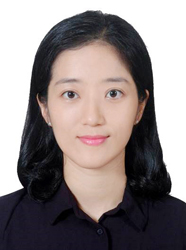30 Jul2021
在任何時候,我們都戴著不只一頂帽子,在生活中扮演著多重角色,舉例來說,我們之中很多人是老師、配偶、父母和子女,然而因為我們的資源(時間、金錢和精力)有限,通常很難實現他人對這多種角色的期待,那麼,我們要如何處理多種人生角色呢?這種多重角色的交雜如何影響我們的健康與福祉?我們如何支持和賦予個人在生活上各方面獲得更大的成就?
 身為專門研究職場健康心理學的工業與組織心理學家,我研究有償工作和各種與工作無關之角色互動的複雜方式,以及多角色參與對員工健康和福祉的影響。例如,研究職業經歷是否及如何影響家庭經歷,思索受雇父母經常承受工作與家庭角色間的衝突,是否會出現不當的育兒行為(曹銀愛& Allen,2012年),或者員工在工作壓力大的情況下,能否在婚姻中產生敵意的互動(Meier &曹銀愛,2019年),我還研究了最理想的工作家庭經歷(曹銀愛& Tay,2016年)以及其他社會心理壓力源(例如:在工作上努力表現和報酬的公平性,曹銀愛& Chen,2020年)是否對職工的福祉至關重要。【右圖:人社院醫學人文研究所曹銀愛助理教授】
身為專門研究職場健康心理學的工業與組織心理學家,我研究有償工作和各種與工作無關之角色互動的複雜方式,以及多角色參與對員工健康和福祉的影響。例如,研究職業經歷是否及如何影響家庭經歷,思索受雇父母經常承受工作與家庭角色間的衝突,是否會出現不當的育兒行為(曹銀愛& Allen,2012年),或者員工在工作壓力大的情況下,能否在婚姻中產生敵意的互動(Meier &曹銀愛,2019年),我還研究了最理想的工作家庭經歷(曹銀愛& Tay,2016年)以及其他社會心理壓力源(例如:在工作上努力表現和報酬的公平性,曹銀愛& Chen,2020年)是否對職工的福祉至關重要。【右圖:人社院醫學人文研究所曹銀愛助理教授】
我在近期探討的研究項目就是反映不斷變化的問題,例如:我研究照護老人職工的需求和健康狀況(曹銀愛等人,正在進行中),嘗試了解能給予這群不斷增加人口更佳的支持,再舉一個例子,我探討非本國職工的工作家庭問題,像是外籍人士(曹銀愛& Chew,2020年)或是移民職工(曹銀愛& Allen,2019年),我還研究成人初顯期的多重角色參與(Choo、Kan &曹銀愛,2019年),在學期中兼職打工已經成為世界各地大學生的常事。
我計劃繼續並擴大在臺北醫學大學的研究計劃,有鑑於臺灣人口迅速老化,我深信我對在職照護者和中高齡就業人口的研究具相關性,且對臺灣有幫助,同時我還希望與臺北醫學大學的醫學、公共衛生和管理領域的研究人員合作,展開更多的跨領域研究,找出實證的解決方案,以改善職工的健康和福祉。
我具有韓國延世大學(Yonsei University)的心理學學士學位,並取得美國南佛里達大學(University of South Florida)職業健康心理學的工業組織心理學碩士及博士學位,在加入臺北醫學大學醫學人文研究所之前,曾在紐約州立大學奧爾巴尼分校(University at Albany, the State University of New York),及新加坡南洋理工大學(Nanyang Technological University)心理學系擔任助理教授。(文/曹銀愛,人文暨社會科學院醫學人文研究所助理教授)
At any point in time, we wear more than one hat, serving multiple roles in life. Many of us, for example, are a teacher, a spouse, a parent, and a son/daughter. Because we have limited resources – time, money, and energy – fulfilling expectations for multiple roles is often difficult. How do we, then, manage multiple life roles? How does such multiple role engagement influence our health and well-being? How can we support and empower individuals to be more successful in every aspect of their life?
As an industrial-organizational psychologist who is specialized in occupational health psychology, I examine the complex ways that paid work interacts with various nonwork roles and the effect of multiple role engagement on employee health and wellbeing. For example, I investigate whether and how occupational experiences influence family experiences, looking at whether those employed parents who frequently experience conflict between work and family roles engage in less desirable parenting behaviors (Cho & Allen, 2012) or whether employees are hostile in their marital interaction on the days they are more stressed at work (Meier & Cho, 2019). I also examine whether optimal work-family experiences (Cho & Tay, 2016) and other psychosocial stressors (e.g., fairness at work in terms of efforts and rewards; Cho & Chen, 2020) matter for workers’ well-being.
Questions I explore in more recent projects reflect issues in the changing world. For example, I examine role demands and health among workers who have eldercare responsibilities (Cho et al., in progress), trying to understand ways to better support this growing segment of population. As another example, I study work-family issues among workers who do not reside in their own countries, such as expatriates (Cho & Chew, 2020) or immigrant workers (Cho & Allen, 2019). I also study multiple role engagement among emerging adults (Choo, Kan, & Cho, 2019), as part-time working during school-term has become a commonplace for college students around the world.
I plan to continue and expand my research program at Taipei Medical University. Given the rapid population aging in Taiwan, I believe my research on working caregivers and mature workers is relevant and beneficial to Taiwan. I also hope to conduct more interdisciplinary research, working with researchers specialized in the fields of medicine, public health, and management at Taipei Medical University to find evidence-based solutions for workers’ health and well-being.
I have earned my bachelor’s degree in psychology from Yonsei University, Korea, and the master’s and doctorate degree in Industrial-Organizational Psychology with the Occupational Health Psychology concentration from the University of South Florida, USA. Before joining the faculty of Graduate Institute of Humanities in Medicine (GIHM) at Taipei Medical University, I worked as an assistant professor in the psychology program at the University at Albany, the State University of New York, and at the Nanyang Technological University, Singapore.

